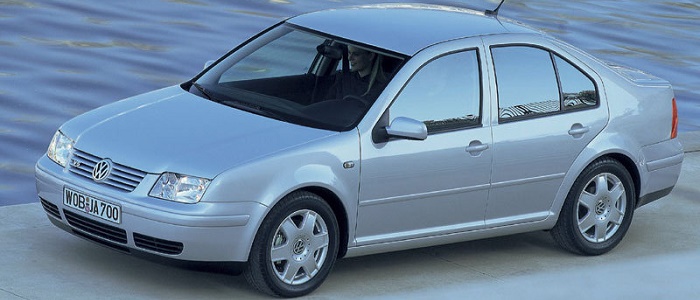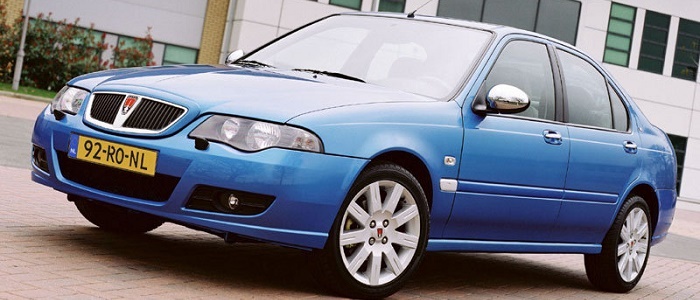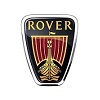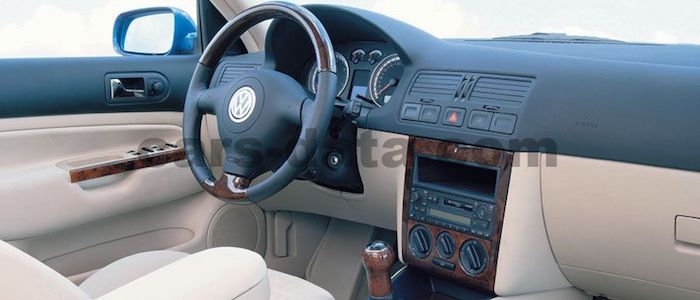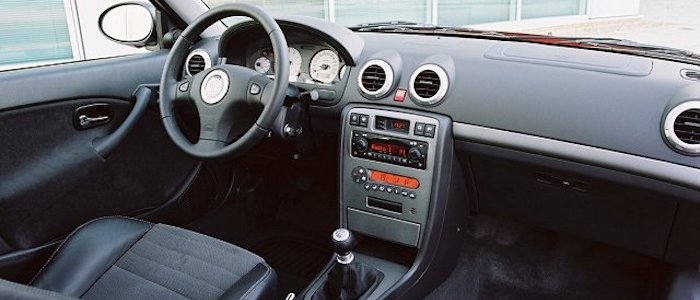Compare two cars
Compare any two cars and get our Virtual Adviser™ opinion
Dimensons & Outlines
Check a car with 30% off a report
Engine
Performance (manual gearbox)
Performance (automatic gearbox)
Expenses
Virtual Adviser's™ opinion
Two significantly similar cars, no doubt about that. Still, each one has something different to offer. Having both cars powered by petrol engines and utilizing the 4-door sedan body style within the same 'Small family car' segment, the only major difference here really is their wheel drive configuration (4 x 4 for the Volkswagen and front in the case of the Rover). The first one has a Audi-engineered powertrain under the hood, a 4-cylinder, 20-valves 125hp unit, while the other one gets its power and torque from a 4-cylinder, 16-valves 117hp engine designed by Rover.
SafetyUnfortunatelly, neither of the two vehicles was submitted to the European New Car Assessment Programme (Euro NCAP) testing. This makes it virtually impossible for me to pick one over the other and I'm generally against buying such cars as the safety should really always come first. Still, apart from the official crash test results there are other things we need to be aware of. Both vehicles belong to the small family car segment, which is generally classifying them somewhere in the middle safety-wise, still it doesn't help us solve our dilemma, does it? Furthermore, if we'd like to consider vehicle mass in this context too, which we definitely should, the German car offers a marginal difference of 3% more metal.
ReliabilityManufacturers have been building their reliability reputation for decades now and, generally speaking, it appears that Rover does have a slight advantage, when all the models are taken into account. These are the results of an independent reasearch, while our visitors describe reliability of Volkswagen with an average rating of 4.2, and models under the Rover badge with 4.5 out of 5. Independent research findings rank Bora as average reliability-wise, and 45 is more or less at the same level.Above it all, drivers of cars with the same engine as the German car rank it on average as 4.0, while the one under the competitor's bonnet gets 4.6 out of 5.
Performance & Fuel economyRover is undoubtly more agile, reaching 100km/h in 2.3 seconds less than its competitor. Still, it lacks the power to win the top speed competition, topping at 194 kilometers per hour, 4km/h less than the other car. When it comes to fuel economy the winner has to be the British car, averaging around 7.3 liters of fuel per 100 kilometers (39 mpg), in combined cycle. We can't ignore that 23% difference compared to the German car.
Verdict
Rover appears just a bit more reliable, although the difference is truly marginal. The most important thing when deciding between any two vehicles should always be safety, both passive and active. In my opinion, everything taken into account, the German car offers slightly better overall protection and takes the lead. From there things take a different direction, with Rover offering somewhat better performance, just enough to call it quicker. To make things even better, it consumps less fuel! All together, there's not much more to say, in this case I wouldn't even consider anything but Rover. In any case that's my personal view, built upon all the data available to me. What should decide here though is the way you feel about the two vehicles, and I hope you'll find my guidelines useful in the process. Also, you could use the oportunity to find out which car, everything taken into account, would be the perfect choice for you in the eyes of the virtual adviser™, out of 12.000+ vehicles we currently have in our database.























